Approach: We treat Misophonia with a three phase approach:
Protect the patient from trigger sounds using sound generation.
Reduce or eliminate central gain of trigger sounds.
Rethink the trigger sounds and create new neural networks to reduce or eliminate the negative reactions of the limbic system to trigger sounds
Dr. Land is always searching professional literature for the most current research and information regarding Misophonia, hyperacusis and other sound sensitivities. She is focused on finding the best therapies to help her patients live easier, more engaged lives.
Testimonial #1: It has been hard work and a commitment, but overcoming most of my misophonia has given me my life and hope back. The sound generators, combined with counseling, have given me the tools to cope successfully and function in everyday society without issue. Things that once paralyzed me are now merely background sounds I often don’t notice. Fifteen years of misophonia — I thought I would never be free, and now I am!
Testimonial #2: Two years ago I was extremely limited and handicapped regarding daily activates. I had severe migraines and was diagnosed with severe hyperacusis. I had two hearing tests at other facilities, which were painful, causes excessive anxiety, exhausting, and caused migraines. Dr. Paula Land’s tests were gentle and I felt safe with her. It only took one year and I had my life back completely! During this past year, the 2nd year, I have thoroughly enjoyed my life! She is a blessing from God. She is worth 6 hours of driving!
Credentials: Aud, CCC-A, F/AAA, ABA, Fellow, TPA
Irving, TX
75063
Approach: Neurophysiological model of hearing loss and misophonia; modified behavioral therapy.
We offer many acoustic therapy systems practice such as Desyncra, Levo system, The Listening Program (TLP), as well as behavioral modification therapies. We offer teleaudiology to address tinnitus, hyperacusis, and misophonia.
Credentials: TRT, CH-TM
91411
I’m Dr. Stephanie Davis, I’m a licensed Psychologist who is passionate about helping clients with misophonia, anxiety concerns, and obsessive compulsive disorder. I provide virtual services in both California and Florida.
I understand how challenging and isolating misophonia can feel. My goal is to provide an empathetic environment where you can feel supported and comfortable sharing. Even though we can’t change those around us, we can help provide them with greater understanding of what you’re experiencing. We can have talks or joint sessions, allowing family and friends to support you in your treatment.
In treating misophonia, I utilize Acceptance Commitment Therapy (ACT) and Dialectical Behavioral Therapy (DBT). We’ll work to understand triggers, adjust expectations, develop coping strategies, and figure out ways you can engage in your environment, allowing you to improve the quality of your life.
I have a background in psychological assessment and in university counseling centers (BYU, Texas A&M, St. Edwards). In these positions, I’ve come to understand how conditions can affect daily functioning. We can figure out how to adapt and seek accommodations when appropriate.
Approach: I offer diagnostic, psychotherapy, supportive, and advocacy interventions for individuals and families coping with Misophonia. My therapy approaches for misophonia and related stress/anxiety management are informed by Cognitive Behavioral Therapy (CBT), Dialectical Behavioral Therapy (DBT), and Acceptance and Commitment Therapy (ACT). I use a multidisciplinary approach with neurologists, audiologists, psychiatrists, occupational therapists, medical doctors, and other members of a client's treatment team. In terms of advocacy, I offer education to clients, families, and school personnel as needed and support individuals seeking accommodations in the school or work settings.
Primarily the clients with Misophonia who I have seen over the years report that it is most helpful and relieving to have someone validate that what they are experiencing is a "real thing" and that they are not crazy. Similarly, many clients report great value in educating family members and seeking school and workplace accommodations that offer some relief across settings.
We are a group psychotherapy practice who serves individuals across the lifespan with various psychological conditions. We have 5 office locations throughout Chicago and the west suburbs but not all providers work at all locations. We are a supportive group of professionals who pride ourselves on providing evidenced-based, caring, and compassionate services.
Certifications: Licensed Clinical Psychologist
60521
APPROACH: As a clinical psychologist, I treat misophonia with a form of cognitive-behavioral therapy (CBT) which utilizes acceptance-based approaches that help the individual learn how to respond to sound triggers so that they are less aversive and more acceptable. I also directly target the emotional response of anger/rage to enable one to feel greater control over their reactions to triggers. Additionally, I offer to integrate counseling into the treatment for secondary emotional concerns that result from misophonia such as relationship difficulties and/or other life stressors.
I also offer group therapy. It i s an ideal way to engage in an environment that is supportive, collaborative, and therapeutic. I am proud to offer one of the only therapy groups for misophonia in the entire world! This innovative group serves as a place for learning about misophonia, developing more effective ways of handling its symptoms and as a place for people to support each other. Misophonia is very lonely – come and join us!
I use pre/post measures to track progress in therapy.
I also offer my services over telehealth so I treat people over video conference for patients who are out of traveling distance.
CREDENTIALS: Doctorate in Clinical Psychology (Psy.D.)
10016
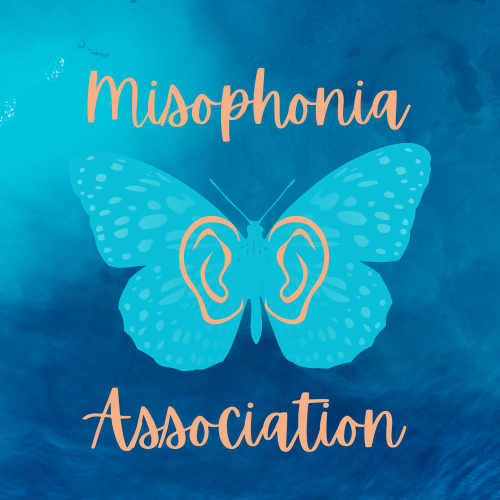
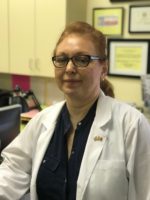
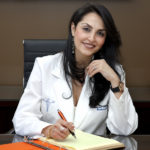
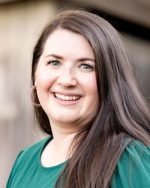
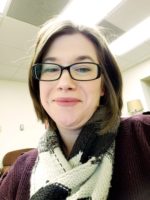
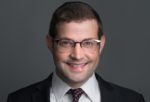
Recent Comments